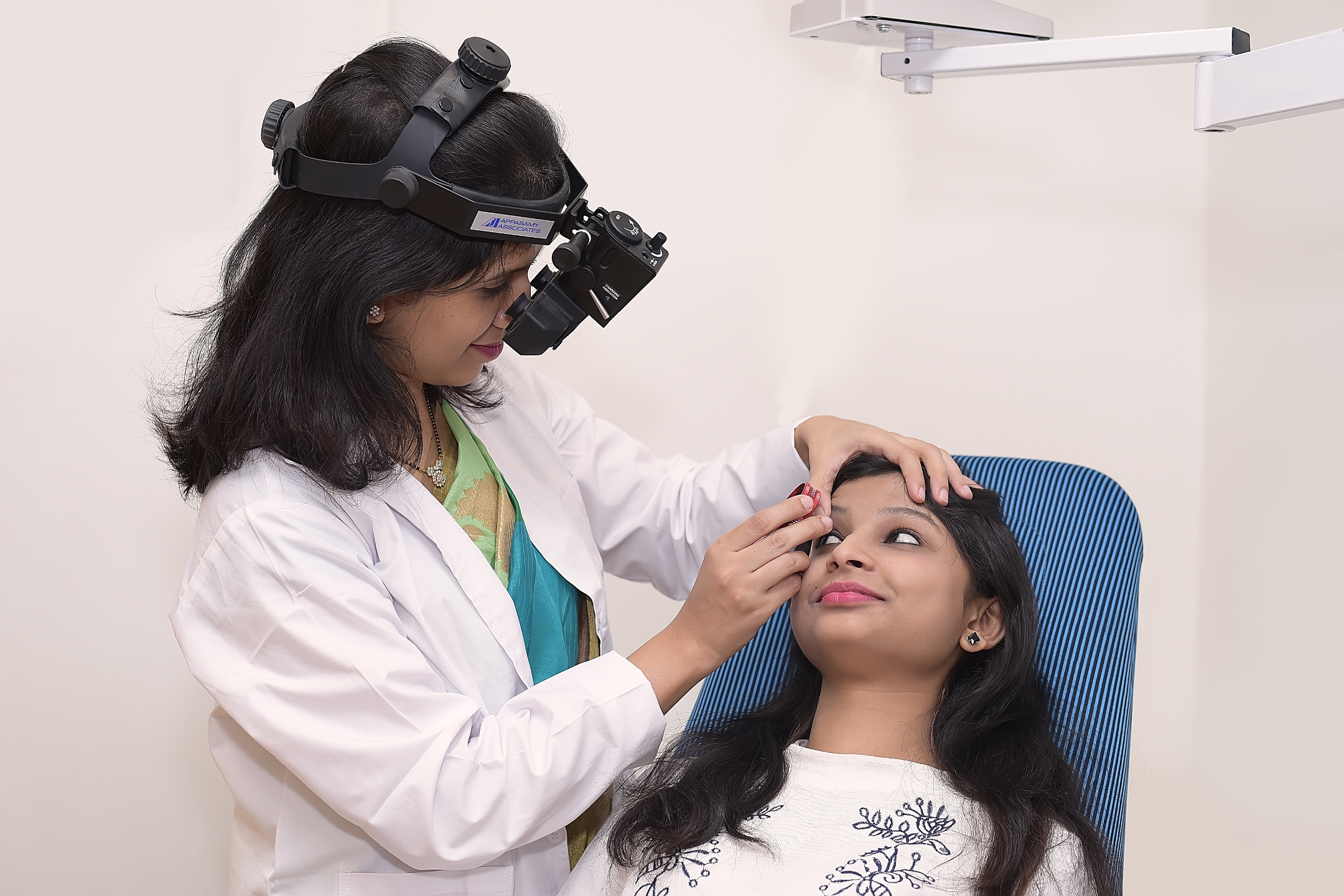Retina Clinic
Dr. Ridhima Bhagali has been trained in Cornea and Anterior segment in King’s College Hospital, London under the very able guidance of the prolific Cornea transplant surgeon, Dr. Emma Hollick.

Diabetic Retinopathy
Small areas of bleeding, swelling, and abnormal new vessels in the retina may require laser treatment or multiple injections to reduce swelling and preserve vision.
Macular Degeneration
Aging changes in the retina’s most sensitive part, the macula, can manifest as dry or wet types, with the latter associated with swelling and bleeding.
Blood Vessel Occlusions
Small blood clots can obstruct retinal vessels, leading to bleeding, swelling, or even retinal tissue death, necessitating prompt medical intervention.
Retinal Breaks
Often found in the peripheral retina, especially in myopic eyes, these conditions require laser strengthening to prevent the retina from detaching.
Retinal Detachment
This is a medical emergency. If you experience a curtain closing in on your vision, accompanied by flashes of light or floaters, seek immediate treatment.
Macular Edema
Swelling in the central retina (macula) caused by fluid accumulation, often due to diabetes or other retinal conditions, can lead to significant vision loss if not treated.
What makes us
different?
- What conditions affect the cornea and how are they treated?
- Why do diabetics and myopic patients need retina exams?
- What symptoms indicate a need for a retina check?
- What should I do if I suddenly lose vision or see a curtain?
The cornea can be affected by conditions such as dry eye, ocular allergies, infections (viral, bacterial, fungal), trauma or chemical injury, keratoconus, and loss of transparency (corneal opacity). Our clinic offers the latest techniques in diagnosing and managing these conditions at a reasonable cost.
Diabetics and individuals with myopia are at a higher risk for retinal conditions. An annual dilated retina examination allows for early detection and treatment of issues like diabetic retinopathy, which can help preserve vision and prevent complications.
Symptoms such as floaters, flashes of light, the appearance of a curtain or spot in your vision, and difficulties with near or night vision are important warning signs. These symptoms indicate the need for a thorough retina examination to rule out serious conditions like retinal detachment or other retinal diseases.
A sudden loss of vision or the sensation of a curtain closing in on your vision could be a sign of retinal detachment, which is a medical emergency. Immediate consultation with an eye doctor is essential, as early treatment increases the chances of vision restoration.
What makes us
different?
- What conditions affect the cornea and how are they treated?
- Why do diabetics and myopic patients need retina exams?
- What symptoms indicate a need for a retina check?
- What should I do if I suddenly lose vision or see a curtain?
The cornea can be affected by conditions such as dry eye, ocular allergies, infections (viral, bacterial, fungal), trauma or chemical injury, keratoconus, and loss of transparency (corneal opacity). Our clinic offers the latest techniques in diagnosing and managing these conditions at a reasonable cost.
Diabetics and individuals with myopia are at a higher risk for retinal conditions. An annual dilated retina examination allows for early detection and treatment of issues like diabetic retinopathy, which can help preserve vision and prevent complications.
Symptoms such as floaters, flashes of light, the appearance of a curtain or spot in your vision, and difficulties with near or night vision are important warning signs. These symptoms indicate the need for a thorough retina examination to rule out serious conditions like retinal detachment or other retinal diseases.
A sudden loss of vision or the sensation of a curtain closing in on your vision could be a sign of retinal detachment, which is a medical emergency. Immediate consultation with an eye doctor is essential, as early treatment increases the chances of vision restoration.
Contact us
Call us
+91 73879 63666
Visit us anytime
793, Shreeman Socty, Deccan
Send us an email
care@nayanjyoteyeclinic.com
About us
Subscribe
Sign up for our newsletter to receive all the news offers and discounts from Nayanjyot Eye Clinic!
Contact us
Call us
+91 73879 63666
Visit us anytime
793, Harshavardhan Socty Deccan Gymkhana, Pune
Send us an email
care@nayanjyoteyeclinic.com
About us
Subscribe
Sign up for our newsletter to receive all the news offers and discounts from Nayanjyot Eye Clinic!

